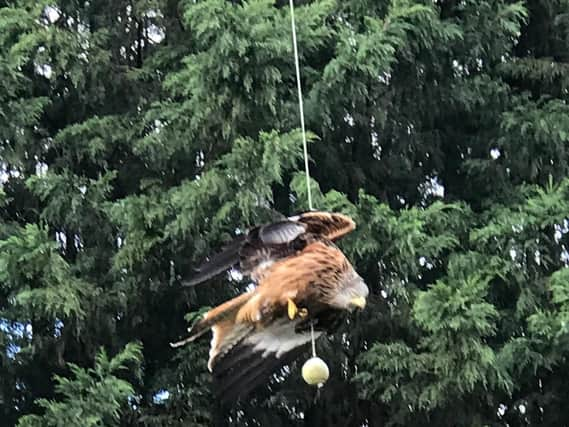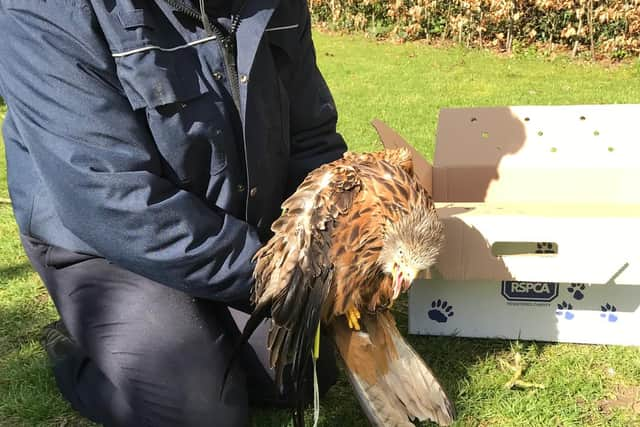RSPCA rescue unlucky Red Kite caught up in 'swingball' rope


Taking a closer look, they were surprised to see a red kite entangled in the broken cord of a swingball set which was hanging from a tree branch in the garden.
It was too high up for them to reach, so they called the RSPCA for help.
Advertisement
Hide AdAdvertisement
Hide AdRSPCA Animal Collection Officer Kate Wright said: “The poor bird was hanging from a broken swingball cord which I believe was already stuck high up in the tree when he flew into it. The ball was still attached to the cord.


“I tied a knife to a series of poles to cut the line from the tree, and was then able to catch the bird in my reach and rescue net. He looked in pretty good shape, though I could see that the cord had rubbed part of his wing, so decided to take him to a specialist centre to recover.
"I’m sure it won’t be long before he can be released back into the wild."
“Although we deal with a lot of red kite incidents in this area, this was a particularly unusual one. I’d like to thank the family for contacting us so promptly.”
Advertisement
Hide AdAdvertisement
Hide AdThe RSPCA urges people to tidy up after themselves as ropes, netting and litter can be a real hazard to wildlife. The animal charity is called to around 5,000 incidents every year relating to litter or netting.
Kate continued: “We receive many reports of incidents of wild animals being injured or trapped due to litter.
“From seals with plastic stuck around their necks causing deep lacerations and wounds to wildlife with plastic and glass jars stuck over their heads or plastic taping wrapped around their bodies. We also see birds entangled in old netting, wire or rope which can severely injure or even kill them.
“It’s so important to ensure our litter is properly disposed of so animals don’t pay the price.”
Advertisement
Hide AdAdvertisement
Hide AdFor more information about animals and litter, visit: www.rspca.org.uk/adviceandwelfare/litter.
If you spot an animal which is trapped, in distress, or in need of help, contact the RSPCA’s 24-hour cruelty line on 0300 1234 999. Do not try to free an animal yourself or put yourself in any danger.
To help the RSPCA keep rescuing animals like these and keep our animal hospitals and centres running for emergency treatment and round the clock care through these unprecedented times, please donate whatever you can spare at www.rspca.org.uk/covid